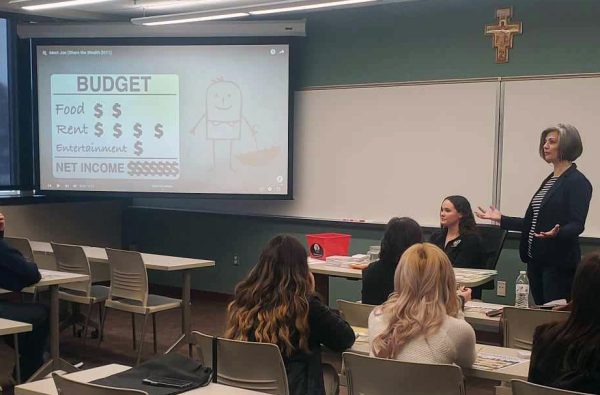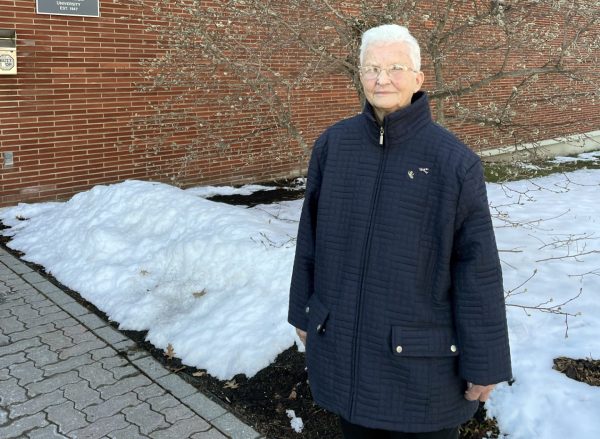Scheduling season arrives at SFU
November 24, 2014
Scheduling season began at Saint Francis on Nov. 10 with the usual trepidation and tumult, as students attempted to craft their desired spring schedules, with faculty advisers and staff in the Registrar’s Office assisting them in an effort to make the process as stress-free as possible.
“First and foremost, students have to meet with their academic advisor,” said Renee Bernard, SFU’s Director of Academic Success. “If their advisor does not clear them, the student will not be able to schedule their classes.”
It is essential for students to be prepared before meeting with their advisers to discuss scheduling. Students should be familiar with their academic paradigms to see what is required for their specific majors, minors and thematic minors. After all, they are preparing for their futures.
“This is the first year we are pre-registering students for the English 103-linked courses to alleviate general confusion about that specific class,” said Bernard. “Students can come into Saint Francis Hall and we register them for the course.”
Students can schedule courses for the spring semester until Jan. 20, so there is plenty of time to switch classes around. Since students will be dropping and adding courses for the next two months, it is beneficial to revisit “full” course listings.
“It helps to have alternative schedules written down as you’re registering for classes,” said Emily Heckman, a junior in the Physician Assistant program. “You won’t feel as stressed seeing the error message. Irritated, maybe, but prepared.”
If a class is closed, there are forms that allow students to request entry into it. The chair of a department has to sign off on entry into a closed section.
“Holds” can be problematic for students and permit them from registering for classes. Students must be vigilant in checking their financial obligations or they may be blocked from registration. Contact the Business Office if a hold is preventing you from registering.
“I think Saint Francis’ small size is such an advantage when registering,” said Literature and Languages assistant professor Brennan Thomas. “Students ask the right questions and have a good connection with their advisors.”









